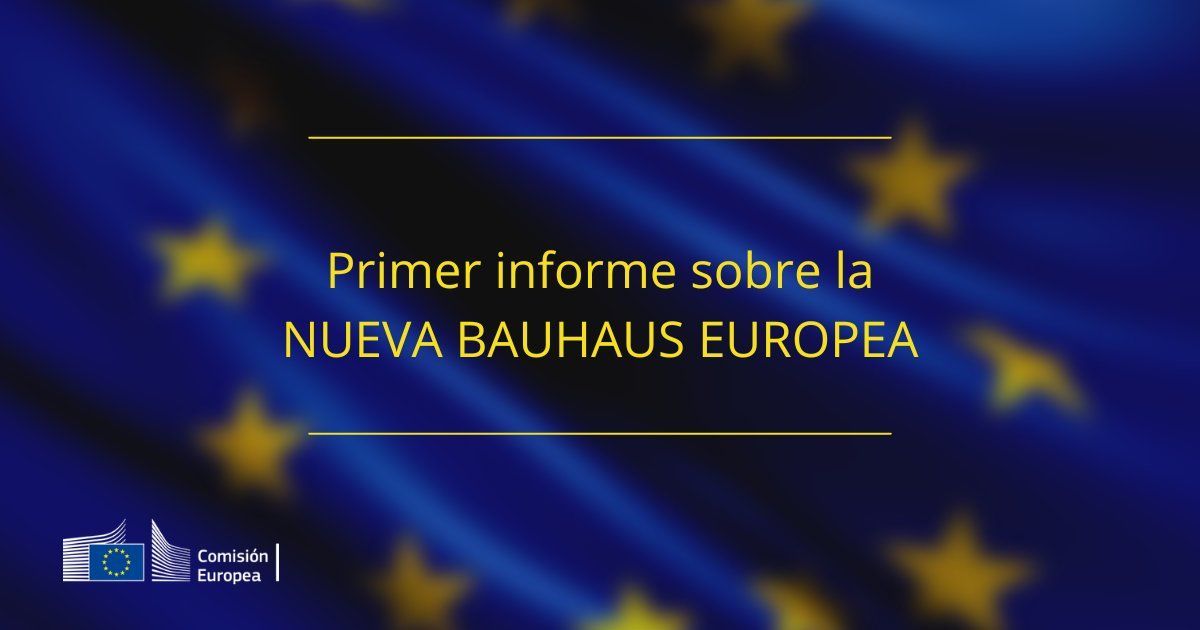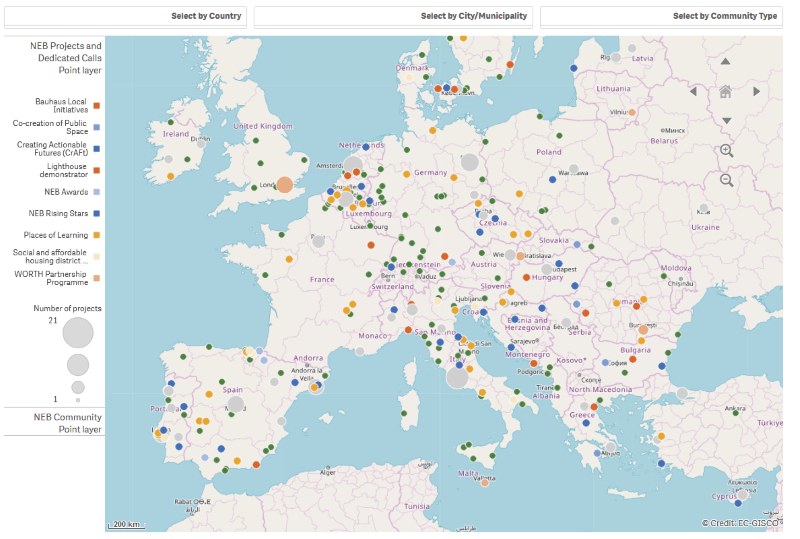The Commission is presenting the first New European Bauhaus (NEB) Progress Report taking stock of the achievements in the initiative’s first two years as well as the first assessment tool for NEB project: the NEB Compass. The New European Bauhaus has created a broad community of organisations and citizens all around Europe working around a common vision combining sustainability, inclusion, and aesthetics. Key NEB activities – including the NEB Prizes, the first Festival, the NEB Lab – are delivering on their aims and have built a bottom-up transnational network. Thanks to over €100 million in European funding already allocated, small and large-scale NEB projects are now underway all-around Europe. The Commission will also scale up funding with a further €106 million in dedicated Horizon Europe funds alone for 2023-24.
A NEB movement
The initiative has grown into a movement with an active and growing community from all EU Member States and beyond.
With over 600 official partner organisations ranging from EU wide networks to local initiatives, the NEB reaches millions of citizens. The initiative is bringing together people from various backgrounds – from art and design, cultural and creative industries, cultural heritage institutions, to educators, scientists and innovators, businesses, local and regional authorities, and citizen initiatives.
Since the start, the NEB has encouraged and inspired local, regional, and national actors to create their own NEB initiatives. To offer transparent access to information on New European Bauhaus dedicated calls, beneficiaries and its community members, the Commission has created the NEB Dashboard, a comprehensive database in the form of an interactive map.
The NEB community is also active in Ukraine. This includes giving input both to emergency housing solutions as well as to long term reconstruction planning. The NEB Lab is running three pilot projects (housing urgency, circularity, and capacity building), an inventory was made of the needs of Ukrainian municipalities and their stakeholders (e.g., architects, urban planners, students and construction companies) for short- and long-term reconstruction. A series of capacity-building tools for Ukrainians, NEB partners and international reconstruction experts will become available in the first quarter of 2023, based on the outcomes of the pilot projects.
Substantial EU investments starting to bear fruit
With targeted funding from different EU programmes, the NEB has started to implement real change on the ground. In 2022, the first six NEB demonstrators– large-scale, replicable local transformation projects – were chosen and started to work, financed under Horizon Europe. In 2023, the next 10 will follow under Cohesion policy’s European Innovative Actions. Together with smaller-scale projects all over Europe, over €100 million were invested into NEB projects supported by different MFF programmes in 2021-2022.
All Member States have included references to the New European Bauhaus in their cohesion policy programmes for 2021–27, paving the way for NEB-inspired projects to receive cohesion funding.
New NEB Compass to guide project development and assessment
Today, the Commission is also presenting the NEB Compass, an evaluation tool that helps understand to what extent a given project is embodying the NEB approach. It explains what the three NEB values, sustainability, inclusion, and beauty, mean in specific contexts; how they can be integrated and combined with the working principles of participation and transdisciplinary. Based on this Compass, more detailed assessment tools will be developed, starting with the built environment.

EU to invest €13.5 billion in research and innovation for 2023-2024
|
Way forward
The Commission will also continue working on mainstreaming the NEB in EU programmes, including under shared management in Cohesion Policy, and increasing the funding of the initiative. More than €106 million will be allocated to NEB dedicated calls under the Horizon Europe Mission and Clusters in 2023 and 2024.
In the context of European Year of Skills, the 2023 edition of NEB Prizes will have a thematic focus on education, and it will expand the geographical coverage to the Western Balkans in addition to EU Member States. This year, the NEB will also develop the NEB Academy and will put in place trainings on sustainable construction, circularity, and biobased materials to accelerate the transformation of the sector.
Ongoing projects will continue, such as the NEB Lab, to anchor the NEB in all policies. The NEB also sees it as one of its important tasks to increase presence in countries and regions, including rural areas, where there is only little NEB activity thus far.
Thanks to the Erasmus+ “DiscoverEU” New European Bauhaus routes, young Europeans will soon have the possibility to discover Europe’s stunning landscapes and cities, while learning about the New European Bauhaus projects.
Source: European Commission








Leave a Reply